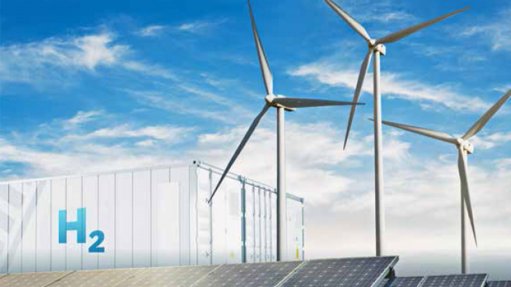
PERTH (miningweekly.com) – The Japanese government, through its Green Innovation Fund, has committed A$2.35-billion to establish the Hydrogen Energy Supply Chain (HESC) project, in Victoria.
The HESC project was piloted in January of last year, and achieved a world first by demonstrating that clean liquid hydrogen can be extracted from a mix of Latrobe Valley coal and biomass, liquified, shipped and unloaded in the Port of Kobe in Japan.
The federal and state governments contributed a combined A$100-million in funding to the A$500-million pilot project, with the remainder provided by the Japanese government and project partners.
The latest round of funding will be delivered via Japan Suiso Energy (JSE) comprising Kawasaki Heavy Industries and Iwatani Corporation. A newly formed J-POWER and Sumitomo Corporation joint venture (JPSC JV) will supply 30 000 t/y of clean hydrogen gas to a JSE-owned and -operated liquefaction and shipping facility at the industrial Port of Hastings.
This major injection of capital enables JSE to design and build commercial-scale facilities to liquefy and ship the hydrogen from Port of Hastings to the Port of Kawasaki in Japan, bringing significant economic benefits to Victoria and Hastings in particular.
The JPSC JV will extract the hydrogen from Latrobe Valley coal with carbon capture and storage facilities in the nearby Bass Strait. The project will help reduce atmospheric carbon dioxide (CO2) on the path to net zero by 2050 and, at full commercial scale, create many sustainable energy jobs in the Latrobe Valley and Hastings.
The JPSC JV will initially produce between 30 000 t/y and 40 000 t/y of gaseous clean hydrogen. A future potential production of 225 000 t/y would reduce about 1.8-million tonnes a year of CO2 from being released into the atmosphere, equivalent to the emissions of about 350 000 petrol cars.
Subject to commercial agreements and meeting the required environmental permits and approvals, it is expected hydrogen production will commence in the late 2020s.
“After a decade of working together with the Japanese, Australian and Victorian governments, our efforts to establish a world-first clean hydrogen energy supply chain have been rewarded,” Japan Suiso Energy CEO Dr Eiichi Harada said.
“This is truly a watershed moment for our combined efforts to decarbonise global energy production. This commitment of A$2.35-billion gives all participants in the hydrogen supply chain the confidence to progress to the next stage of commercialisation.
“This is a complex project and there is still some way to go in terms of approvals, design, construction and commissioning but this is a major boost for the Victorian economy on its journey towards a clean energy future,” said Harada.
“The project will bring new clean energy infrastructure and jobs to the Hastings and Latrobe Valley communities. Something we think is very important as we support the people through this period of change, as well as the broader energy sector.”
J-POWER Latrobe Valley non-executive director Jeremy Stone said that bringing commercial-scale hydrogen production to the Latrobe Valley would act as a catalyst for growth in the broader Gippsland region, as complementary industries such as ammonia, fertiliser and methanol are attracted to the opportunities it presents.
“Gippsland presents a unique opportunity to help reduce global CO2 emissions through the reliable production of large quantities of cost-effective clean hydrogen. Beyond the abundance of natural resources, the area has unrivalled access to a skilled workforce, major energy infrastructure and viable long-term storage for captured CO2 in the Bass Strait.
“Subject to commercial agreements and meeting the required environmental permits and approvals it is expected hydrogen production will commence by the late 2020s,” he added.
The Mining and Energy Union in Victoria has welcomed the major investment, with Victorian president Trevor Williams saying the project would create hope and opportunity for working families in the region, where prior and impending coal-fired power station closures were creating deep anxiety.
“The pilot project has demonstrated that carbon-neutral hydrogen can be economically generated from Latrobe Valley coal and transported to Japan,” he said.
“Expanding and commercialising this project helps the Japanese economy’s energy transition, while also building a viable new industry to support the economic transition of the Latrobe Valley.
“We expect that contracts to provide coal to the hydrogen plant will provide full-time, well-paid career pathways for Latrobe Valley coal mineworkers and energy workers facing displacement by power station closures.
“Any industry consistent with a low carbon future delivering such good alternative jobs for power workers and coal miners must be supported by any responsible government,” said Williams.